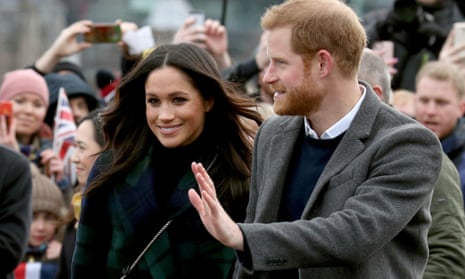Security costs are a controversial issue for the royal family, with neither Buckingham Palace nor the government willing to discuss arrangements publicly.
As security is paid for from the public purse, the issue is often weaponised by critics who argue police protection should not automatically be conferred on non-working royals and extended family members.
There are calls for the Duke of York to pay for his own security after being stripped of his royal patronages and the use of the HRH style in any official capacity in the fallout from the US civil sex assault lawsuit he faces.
In this case, Prince Harry has offered to personally pay for Scotland Yard protection for him and his family while they are in the UK. A Home Office decision prevents him from doing this.
His concerns are that his private security team does not have adequate jurisdiction abroad or access to UK intelligence information required to keep him and his family safe.
He also warns of damage to the UK’s reputation should a member of the royal family be harmed on its soil.
Security provision for the Sussexes was one of the key issues when they announced they were stepping down as working royals. Their website at the time suggested they believed the Home Office, through the Metropolitan police, should continue to provide protection for the family.
Speaking to the chatshow host Oprah Winfrey in 2021, Harry said he was told that “due to our change of status – we would no longer be ‘official’ members of the royal family”. He said he had been shocked by this and “pushed back” on the issue, arguing that there had been no change of threat or risk to the couple.
Meghan, during the same interview, told how she had written to her husband’s family urging them not to pull his security, but had been told “it’s just not possible”.
They disclosed they had put in place “privately funded security” for their move to the US after then president Donald Trump said America would not meet the bills for the couple’s protection. Harry later told Winfrey they were paying for private security through deals they secured with Netflix and Spotify.
Harry has said he “inherited” a risk on being born into the royal family. His legal team said that risk was “for life”.
In a statement, the prince’s legal representative said: “He remains sixth in line to the throne, served two tours of combat duty in Afghanistan, and in recent years his family has been subjected to well-documented neo-Nazi and extremist threats. While his role within the institution has changed, his profile as a member of the royal family has not. Nor has the threat to him and his family.”
A judicial review is a court proceedings that challenges the lawfulness of a decision by a public body. Judicial review claims must pass a “threshold test” before they can proceed.
Harry has filed his claims, and the Home Office must file an “acknowledgment of service” and their grounds for resisting the application. The high court will now consider whether there is an arguable case for judicial review. Where permission is granted, the claim proceeds to a substantive hearing.
